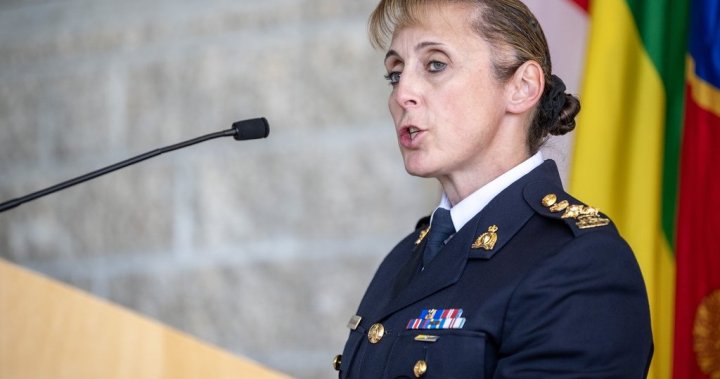In a significant leadership transition that signals Ottawa’s growing focus on regional security operations, Saskatchewan’s top RCMP officer has been appointed to a prestigious position at national headquarters. Assistant Commissioner Rhonda Blackmore, who has led the Saskatchewan RCMP division since 2021, will be relocating to the nation’s capital to take on new responsibilities in federal policing operations.
The announcement came earlier this week following months of speculation about potential leadership changes within the national police force’s upper echelons. Blackmore’s tenure in Saskatchewan has been marked by several high-profile cases, most notably her leadership during the tragic James Smith Cree Nation mass stabbing in September 2022, which left 11 dead and 18 injured in one of Canada’s worst mass casualty events.
“Serving the people of Saskatchewan has been the greatest honor of my career,” Blackmore stated in her departure announcement. “The resilience I’ve witnessed in communities across this province during times of crisis has profoundly shaped my approach to policing and community safety.”
During her command, Blackmore implemented several innovative community policing initiatives that strengthened relationships between RCMP detachments and rural Indigenous communities, a model that sources suggest may be expanded nationally through her new role.
Public Safety Minister Dominic LeBlanc praised Blackmore’s appointment, noting that “her exceptional crisis management skills and commitment to relationship-building with diverse communities represents exactly the leadership approach needed in today’s complex policing environment.”
The Saskatchewan RCMP has faced numerous challenges during Blackmore’s leadership, including navigating pandemic-related enforcement issues, addressing rural crime concerns, and implementing new accountability measures following calls for police reform. Her handling of these sensitive matters appears to have impressed officials in Ottawa seeking to modernize federal policing approaches.
Law enforcement analyst Margaret Kowalski of the Canadian Institute for Public Safety described the appointment as strategically significant. “This move suggests a potential shift toward incorporating more regionally-successful policing models into national strategy,” Kowalski explained. “Blackmore’s experience balancing rural and urban policing concerns in a diverse province like Saskatchewan brings valuable perspective to headquarters operations.”
The RCMP has begun the process of selecting Blackmore’s replacement in Saskatchewan, with an interim commanding officer expected to be named next week. Her transition to Ottawa comes at a time when the federal government has pledged increased resources toward addressing cross-border crime, cybersecurity threats, and national security concerns.
As Canada’s national police force continues evolving to meet 21st century challenges, Blackmore’s appointment raises important questions about how regional policing innovations might reshape national security priorities. Will successful community-focused approaches from provinces like Saskatchewan become blueprints for federal policing strategy in the years ahead?


















